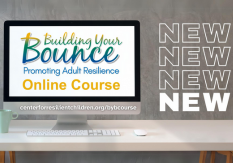Autism Awareness Month: Talking to individuals with autism about COVID-19“If you are caring for a child or loved one with autism, it is important to speak with him or her about COVID-19 to ensure they have the information and resources they need – without causing unnecessary worry and anxiety.” For families and caregivers of children and adults with autism spectrum disorder (ASD), the COVID-19 (Coronavirus) public health crisis brings new challenges, such as confusion and disruptions to daily routines and schedules. Dr. Graham stresses the importance of communication, and allowing time for individuals to process these changes. She offers the following tips when talking to individuals with ASD about COVID-19:
“When it comes to talking to individuals with autism about COVID-19, there is no one-size-fits-all approach,” said Graham. “Communicate in a way that works best for them – use plain language and avoid technical terms. Visual supports, such as social stories, videos and pictures can be extremely helpful when explaining a complex topic.” Coping strategies and activitiesTo help families and caregivers guide the conversation around COVID-19, and manage stress and anxiety related to this virus, Devereux offers the following tools and resources.
Access a full list of coping strategies and activities to help you and your loved one and stay safe during this public health crisis. Practicing optimism; resilienceIn addition to the resources noted above, read an article featuring Amy Kelly as she shares steps families and caregivers of individuals with special needs can take to provide reassurance to children and adults living with emotional, behavioral and cognitive differences. “Be the change you wish to see,” Kelly explains in the article. “Practice optimism and resiliency; demonstrate it to your family on a regular basis. Reframe how you look at the situation, and explain it to them. For example: Maybe your child can finish that art project he or she has been thinking about. Perhaps your child can take on a new job or chore now that the whole family is home and needs to pitch in. Emphasize what a ‘good helper’ he or she has become.” Graham adds, “As we navigate these uncertain times, it is important to watch for signs of distress, as your loved one may need additional supports if he or she is feeling overwhelmed or anxious. Take cues from your child or loved one, and provide reassurance to help him or her feel safe, secure and more resilient as we look forward to a brighter – and healthier – future.”
Latest News
|
|||||||||||||
- Home
- About Us
- Advanced Philosophy of Care
- Mission, Values and Service
- Our Commitment to Safety
- Our History
- Senior Leadership Team
- Devereux Board of Trustees
- Annual Reports
- Devereux in the News
- Diversity, Equity, Inclusion and Belonging
- Recognizing Our Employees
- Celebrating Our Devereux Families
- Sharing Messages of Hope
- Who We Help
- Locations
- Supporting Devereux
- Training and Consulting
- Careers














